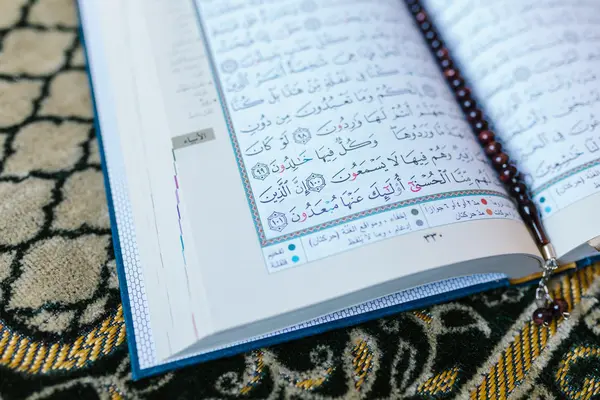
Understanding the 7 Pillars of Imaan in Islam Crédit d'image :
Publié le 9 mars 2023, par Samir | 10 h 14 min
Temps de lecture : 4 minutes
The 7 Pillars of Imaan, also known as the articles of faith, are the core beliefs of Muslims. These beliefs are derived from the Quran and Hadith (sayings of the Prophet Muhammad) and form the foundation of Islamic theology. Understanding the 7 Pillars of Imaan is essential for Muslims as it helps them develop a solid and meaningful relationship with Allah and His creation. Understanding the 7 Pillars of Imaan in IslamHere are the 7 Pillars of Imaan: Belief in Allah (Tawheed):This is the belief in the oneness of Allah, who is the only God worthy of worship. Muslims believe that Allah is the universe’s creator, sustainer, and controller. Belief in the Angels (Malaikah):Muslims believe in the existence of angels, who are created by Allah and have no free will. Angels are responsible for carrying out Allah’s commands and are believed to record a person’s deeds. Belief in the Prophets (Nubuwwah):Muslims believe in all the prophets and messengers sent by Allah, including Adam, Noah, Abraham, Moses, Jesus, and Muhammad (peace be upon them all). Allah chose prophets to deliver His message to humanity and guide them toward righteousness. Belief in the Books (Kutub):Muslims believe in the holy books revealed by Allah to His prophets, including the Torah, Zabur, Injeel, and the final revelation, the Quran. The Quran is considered the ultimate and final guidance for all of humanity. Belief in the Day of Judgment (Qiyamah):Muslims believe in the Day of Judgment when Allah will resurrect all human beings and hold them accountable for their deeds. Those who have lived a righteous life will be rewarded with paradise, while those who have lived a sinful life will be punished in hellfire. Belief in Divine Destiny (Qadr):Muslims believe in the concept of divine destiny, which is the belief that everything in the universe happens according to Allah’s will. Muslims believe Allah completely controls all aspects of life, including good and bad events. Belief in Life After Death (Akhirah):Muslims believe in life after death, where the soul is separated from the body and is judged by Allah. This belief in the afterlife motivates Muslims to live righteous lives and fulfill their duties towards Allah and His creation. Understanding the 7 Pillars of Imaan is crucial for Muslims as it helps them to develop a deep and meaningful relationship with Allah and His creation. These beliefs form the foundation of Islamic theology and guide Muslims in all aspects of their lives. Relevant Hadiths Mentioning the Pillars of ImaanMany Hadiths (sayings and actions of Prophet Muhammad) mention the Pillars of Imaan. Here are some examples:
These Hadiths emphasize the importance of the 7 Pillars of Imaan in the life of a Muslim and encourage them to have faith in Allah, declare His Oneness, be kind and hospitable to others, speak good words, acquire knowledge, and teach it to others. ConclusionIn summary, the 7 Pillars of Imaan are the foundation of Islamic beliefs and practices. These beliefs are derived from the Quran and Hadiths of Prophet Muhammad, and they are essential for Muslims to have a solid and unwavering faith in Allah. By adhering to these beliefs, Muslims can understand the purpose of their existence, the path to salvation, and the means to achieve closeness to Allah. In addition, the 7 Pillars of Imaan provide guidance and direction for Muslims in their daily lives. These beliefs are not just abstract concepts but are practical and applicable to everyday situations. They shape Muslims’ moral and ethical values and provide comfort and hope in times of hardship and adversity. Ultimately, the 7 Pillars of Imaan are a source of guidance and inspiration for Muslims to lead righteous and fulfilling lives. |
ven. 4 Sha'bane
الجمعة 4 شعبان |
| Contact | Mentions légales | A propos | Ressources | Blog | Glossaire | Questions réponses sur l'islam |
| Devenir musulman - Islam et terrorisme - Se convertir à l'islam - Prénom musulman - Roqya |
| English : al hamdulillah | Arabic : الحمد الله al-hamdoulillah.com © 2026 |